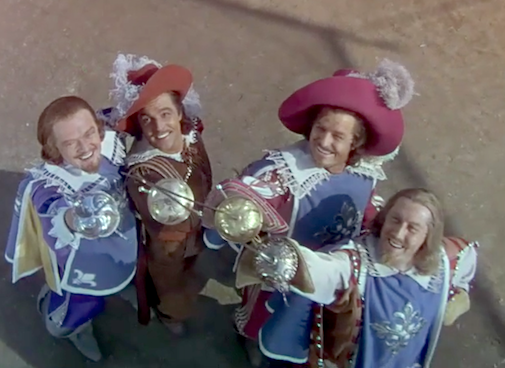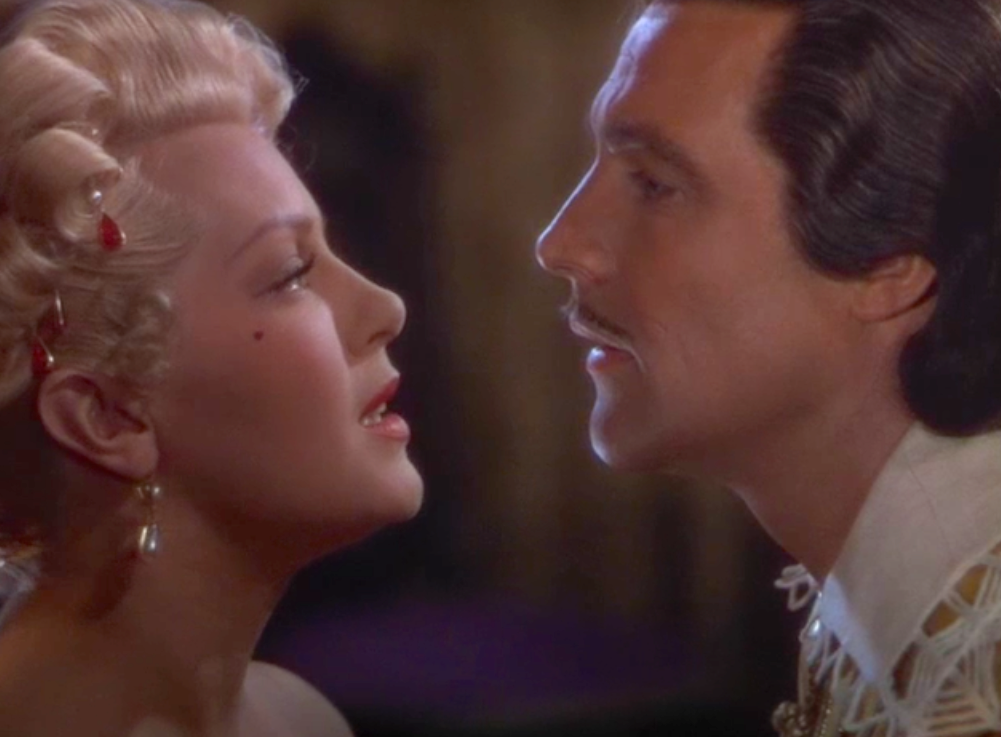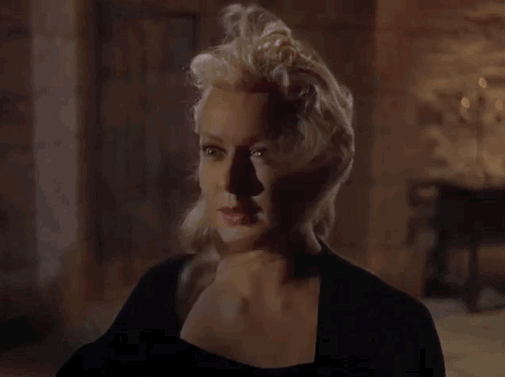by Nathaniel R

After looking at three popular musicals Anchors Aweigh (1945), Kiss Me Kate (1953), and Bye Bye Birdie (1963), in our mini George Sidney Centennial celebration, we're closing up with his other primary mode: the adventure flick. Curiously those films also feel like musicals even when they aren't. Case in point is The Three Musketeers (1948) and the subliminal feeling that at any moment a song and dance number might break out. That's not only because glorious Gene Kelly is the star. This feeling radiates outward from the ebullient movement of all of the swordsmen. It's also firmly embedded in the swooning romantic overtures that happen instantaneously between Gene Kelly and each of the women. Lana Turner is the devilish Lady de Winter and June Allyson is the saintly Constance and, in case you're wondering, no one will ever accuse this movie of subtlety or evolved gender politics. Still the love scenes are memorable for their queer duet of completely earnest and purposefully comic registers.

While The Three Musketeers, MGM's second biggest hit of the entire decade, never abandons its swashbuckler adventure commitments to make room for the theoretical song and dance number, it does make quite a few overtures to other identities. This treatment of the Alexander Dumas story is also a romantic comedy, a slapstick farce, and even a stylized melodrama...
The latter is sometimes an uncomfortable fit given what precedes it. The Three Musketeers is almost two completely different pictures. At just 125 minutes it probably didn't have an intermission in theaters but it could have used one to separate the tremendously silly comedy of Act One from the tragic melodrama of Act Two.
Some pictures just need a curtain drop right in the middle, you know?
 In lieu of that the A list chews all the available scenery to help clear the set for the tonal shifts. Directing actors was perhaps never a Sidney strong suit in the way that sustained energy and joy were but The Three Musketeers survives the inconsistencies in charactgerization with an all star cast that are obviously enjoying the broad strokes. Vincent Price is a fun and influential baddie as the pussy-stroking Richileu. He never actually twirls that sharp moustache but leaves that to D'Artagnan (Gene Kelly in one of his hammiest performances...and that's saying a lot!) who literally does that while pretending to be the foppish villain Count de Ward (Dick Simmons) in order to seduce the evil Lady de Winter (Lana Turner) who is secretly married to Athos (Van Heflin) to find out where she's hiding Constance (June Allyson) who works for the Queen (Angela Lansbury) who is cheating on the King (Frank Morgan) with the Duke of Bukingham (John Sutton).
In lieu of that the A list chews all the available scenery to help clear the set for the tonal shifts. Directing actors was perhaps never a Sidney strong suit in the way that sustained energy and joy were but The Three Musketeers survives the inconsistencies in charactgerization with an all star cast that are obviously enjoying the broad strokes. Vincent Price is a fun and influential baddie as the pussy-stroking Richileu. He never actually twirls that sharp moustache but leaves that to D'Artagnan (Gene Kelly in one of his hammiest performances...and that's saying a lot!) who literally does that while pretending to be the foppish villain Count de Ward (Dick Simmons) in order to seduce the evil Lady de Winter (Lana Turner) who is secretly married to Athos (Van Heflin) to find out where she's hiding Constance (June Allyson) who works for the Queen (Angela Lansbury) who is cheating on the King (Frank Morgan) with the Duke of Bukingham (John Sutton).
It's all very complicated! But fun with terrific swordfights.
One suspects that surviving prints of The Three Musketeers don't do full justice to the movies cinematography which was its only Oscar nomination. Early scenes look washed out, the colors rarely popping, but the second half is in much better visual shape with beautiful sunsets, expressive candle light sequences, radiantly colorful costumes and even something we like to call Technicolor Psychosis. The Three Musketeers shared box office dominance in 1948 with The Red Shoes but it's another Powell & Pressburger picture it foretells -- once Lady de Winter is locked up, she goes fully homicidal in storm-illuminated closeup.

Curiously, though Lana Turner is top billed (the ads even shouted "Lana Turner! First time in Technicolor!") she thought the role beneath her and too small. But in fact she's rather intensely showcased despite being a supporting character, completely taking over the movie in its second half. Stars aren't always aware of what's best for them and the size of a role is rarely determinive of its worth within a filmography.
Gene Kelly on the other hand attacks his part like it's his best (it's not) despite an unflattering dye job (sigh). Despite the loss of his familiar perfectly coiffed short dark hair, the film finds other ways to exploit his silver screen beauty, frequently deploying his seismically attractive profile. It even has quite a lot of fun gawking at his body and tush. At first I blamed this Tina Belcher like "BUTTS" fixation on my own complicity in the queer modern gaze directed at old movie stars.
But then this happened.

George Sidney and Gene Kelly both knew where their bread was buttered. They always aimed to please and it wasn't just these Three laughing Musketeers who enjoyed their charm offensive.